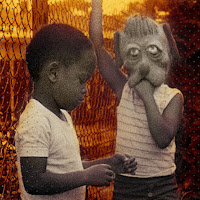KFAI
Where Community Grows
KFAI is a volunteer-based community radio station that exists to broadcast information, arts and entertainment programming for an audience of diverse racial, social and economic backgrounds.

--/--/--
-:--:-- --
MinneCulture Presents
Nov 13, 2019 7:00 PM – 8:00 PM
Arts and Culture
With Micah Whetstone
THE DRUNK PROJECTIONIST
Charles Burnett and Fredrick Wiseman
Drinking In Charles Burnett
Charles Burnett on The Drunk Projectionist
Critic Terrence Rafferty of GQ called "Killer of Sheep," a film by Charles Burnett, "one of the most striking debuts in movie history." Host Todd Melby interviews writer/director Burnett, about this important film. "Killer of Sheep" examines the black Los Angeles ghetto of Watts in the mid-1970s through the eyes of Stan, a sensitive dreamer who is growing detached and numb from the psychic toll of working at a slaughterhouse. Frustrated by money problems, he finds respite in moments of simple beauty: the warmth of a teacup against his cheek, slow dancing with his wife, holding his daughter. The movie offers no solutions; it merely presents life - sometimes hauntingly bleak, sometimes filled with transcendent joy and gentle humor. The film was shot in roughly a year of weekends on a budget of less than $10,000, and also out of the pocket of Burnett himself. Filmed on location, the picture offers an episodic narrative with gritty documentary-style cinematography.
Documentary filmmaker Frederick Wiseman discusses "Titicut Follies," his controversial 1967 film about a hospital for the criminally insane. In this interview with Todd Melby, he also reveals why he shot most of his movies on 16mm, how his films are structurally similar to plays, and why he hates the term "cinema verite." The film "Titicut Follies" launched Wiseman's trademark style of filmmaking: no interviews, no music, no restaging of events, no crawl of type identifying subjects or places. His documentaries - he’s made more than 35 films in 50 years - are his and his alone.
Critic Terrence Rafferty of GQ called "Killer of Sheep," a film by Charles Burnett, "one of the most striking debuts in movie history." Host Todd Melby interviews writer/director Burnett, about this important film. "Killer of Sheep" examines the black Los Angeles ghetto of Watts in the mid-1970s through the eyes of Stan, a sensitive dreamer who is growing detached and numb from the psychic toll of working at a slaughterhouse. Frustrated by money problems, he finds respite in moments of simple beauty: the warmth of a teacup against his cheek, slow dancing with his wife, holding his daughter. The movie offers no solutions; it merely presents life - sometimes hauntingly bleak, sometimes filled with transcendent joy and gentle humor. The film was shot in roughly a year of weekends on a budget of less than $10,000, and also out of the pocket of Burnett himself. Filmed on location, the picture offers an episodic narrative with gritty documentary-style cinematography.
Favorite Melby-haunt, The Trylon Cinema, is currently hosting a series of Burnett's work -- visit trylon.org for movies and showtimes.Frederick Wiseman on The Drunk Projectionist
Documentary filmmaker Frederick Wiseman discusses "Titicut Follies," his controversial 1967 film about a hospital for the criminally insane. In this interview with Todd Melby, he also reveals why he shot most of his movies on 16mm, how his films are structurally similar to plays, and why he hates the term "cinema verite." The film "Titicut Follies" launched Wiseman's trademark style of filmmaking: no interviews, no music, no restaging of events, no crawl of type identifying subjects or places. His documentaries - he’s made more than 35 films in 50 years - are his and his alone.

This playlist has no spins (yet). |
